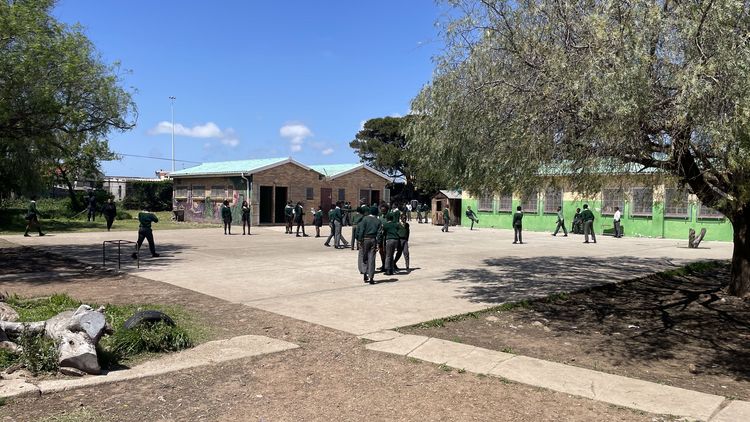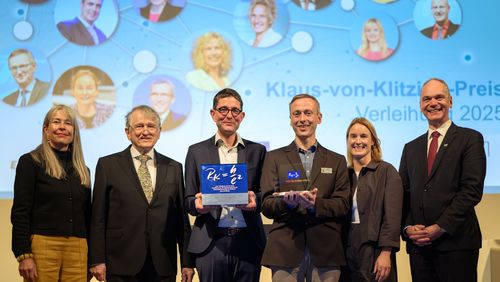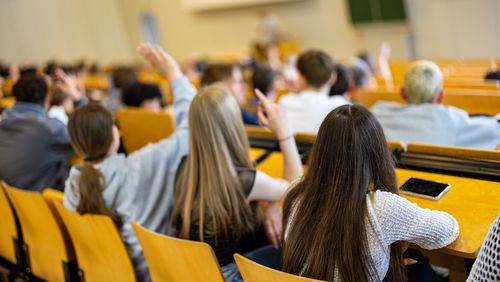How to train future teachers in intercultural skills for current challenges awaiting them in the classrom? A project at the University of Oldenburg with international partners has got some established formats as well as some new ideas – and will receive extended funding until the end of 2029.
Make teachers' education as a whole more international and train them in intercultural skills: this is the goal the University of Oldenburg and its international partners have been pursuing since 2019 with their collaborative “Lehramt.International” programme ("Internationalising Teacher Education"). The funding for this has now been extended beyond 2024: the German Academic Exchange Service (DAAD) will provide up to 620,000 euros for the Oldenburg project from the end of this year until the end of 2029 using funds from the Federal Ministry of Education and Research (BMBF). The other partners in the programme are the Rijksuniversiteit Groningen (Netherlands) and the Nelson Mandela University (South Africa), which have been involved since its launch, and the NHL Stenden Hogeschool in Leeuwarden, which joined the project last year and also focuses on teacher training.
More than 1,000 student teachers have already taken part in the various parts of the project, which include an annual Winter School – the next edition of which will take place in November 2024 – as well as various language tandems and the development and implementation of teaching units by international student teams. More than 400 students have received varying amounts of funding through the programme, with some being awarded a grant for an entire semester. The project team was able to organise a semester abroad with job shadowing at schools in South Africa for 18 Oldenburg students, and has awarded five scholarships for students to spend a semester in the Netherlands.
“Germany needs teachers who are competent in dealing with increasingly diverse groups of learners,” said Prof. Dr Katharina Al-Shamery, Vice President for Academic Career Paths, Equal Opportunities and International Affairs at the University of Oldenburg. “International experience is particularly important to ensure that our students are well prepared for their erveryday working life at school. I am therefore delighted that intercultural learning and international encounters are integrated into the degree programmes here in Oldenburg and anchored for the future.”
Under the motto "Doing Diversity", the project team will focus even more intensively on everyday practices and concrete methods for dealing with diversity in the classroom over the next five years. Each year will focus on a different facet of diversity, with teachers from the participating universities pooling their expertise in various formats that address different topics. These include effective language-sensitive teaching, how teachers can prevent or counter racism, how they can help children with and without disabilities to learn well together and feel comfortable with each other, and how they can discuss diversity of sexual orientation, gender, families and role models with their pupils and also prevent discrimination in these areas. At the end of each year, participants will work together in a Winter School and compile a summary of their findings and experiences. The project will conclude with a comprehensive review of diversity-sensitive teaching practices. The partners also plan to develop a joint certificate for participation in the various parts of the project.
With around 40 percent of its students enrolled in teacher training programmes for a wide range of subjects and all school types, the University of Oldenburg has a strong focus on teacher training. It is the only university in Lower Saxony that offers training for all the different school types in Germany. The project aims to permanently anchor internationalisation in all teacher training degree programmes. “Doing Diversity” is coordinated by the university's International Office and implemented in close cooperation with the Didactic Centre (diz) and the faculties. Special education expert Prof. Dr Ulla Licandro, Americanist Prof. Dr Martin Butler and Prof. Dr Till-Sebastian Idel of the Department of Educational Sciences have central roles in the Oldenburg-based part of the project, as well as Jenka Schmidt, Head of the International Office, and project coordinator Tina Grummel.





